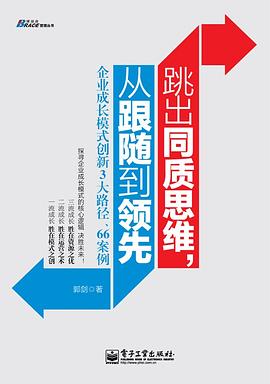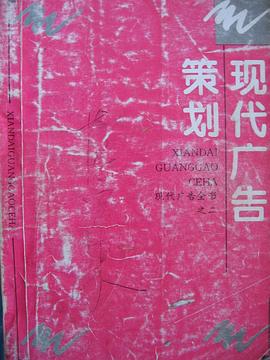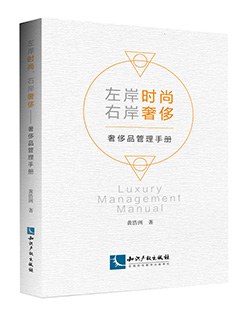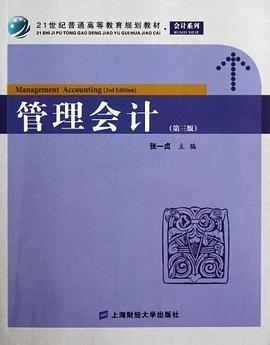

具体描述
Amazon.com
Martin Mayer's engaging examination of the much-talked-about but little understood U.S. Federal Reserve begins with the dramatic events of October 1998, a month in which the market closed "lock limit down" for the first time in almost a decade. At the same time, Alan Greenspan, the Fed's chairman, began radically reinventing his agency's role and its influence on the market. Indeed, while most of the rest of the world's countries were diminishing the role of their central banks, Congress was granting new powers and responsibilities to the Fed. Mayer's book--part history, part journalistic report, and all detailed analysis--looks at the significance of those powers, their benefits and risks, and what they mean to the markets. He also devotes chapters to the day-to-day inner workings of the Fed, its influence in international financial matters, and its possible role in coming years.
As a prolific author and respected economics scholar, Mayer has been immersed in the financial world for decades and provides both bird's-eye and long-range views of money's complicated maneuverings. Without his excellent storytelling abilities and fluid writing style, this book would be heavy going for anyone who doesn't speak the language of high finance. Though it is most definitely dense (and its structure somewhat erratic), Mayer manages to make a complicated subject accessible for those with more interest than actual knowledge. An informative look at a hitherto enigmatic but influential institution. --S. Ketchum --This text refers to an out of print or unavailable edition of this title.
From Publishers Weekly
To most investors, the Fed is one person Chairman Alan Greenspan whose job is to set interest rates. In this entertaining and enlightening account, popular financial journalist Mayer (The Bankers; The Greatest-Ever Bank Robbery) traces the evolution of the Federal Reserve from a sleepy regulatory agency to the most powerful economic institution in the world. Created in 1913, the Fed was designed to regulate banks in an era when they, and not the government, were assumed to control the economy; interest-rate setting was only a minor part of the agency's job. With the rise of a global economy in which individual banks no longer wield their former influence, the Fed has completely reinvented itself. Mayer, a guest scholar at the Brookings Institution and a regular contributor to the Wall Street Journal, tells of turf battles with the Treasury Department and the Federal Deposit Insurance Corporation, in addition to conflicts with bankers and foreign institutions. Although his tale involves extensive discussion of topics like check clearing, reserve assets and regulatory accounting, and most of the protagonists are staid, Mayer livens things up with irreverent character sketches, flamboyant prose (considering the subject matter) and canny storytelling. At the same time, he presents the historical and economic details accurately. (June Forecast: Written with the verve of a Vanity Fair magazine article, and supported by a 20-city radio satellite tour, this very topical book should attract fans of Mayer's previous books, in addition to investors who wish to make sense of the Fed's role in the market.
Copyright 2001 Cahners Business Information, Inc.
--This text refers to an out of print or unavailable edition of this title.
From Library Journal
If you asked someone what the Federal Reserve does, chances are he or she would reply, "Raise or lower interest rates." Mayer (The Bankers) here agrees that adjusting interest rates is one thing that the "Fed" is best known for, but there are many other activities in which the central bank engages. The Fed's original role was that of a central bank and, as such, it was responsible for overseeing the money supply. But as Mayer points out, the Fed has taken on more of an activist role in order to calm markets during times of crisis and to "prevent systemic failure." When the global financial markets went into a tailspin in the fall of 1998, the Fed actively tried to resolve the crisis. With all the attention now given to imploding dot-coms and crashing stock prices, Alan Greenspan and his colleagues may be riding to the rescue once more. Mayer's well-written account helps to further demystify the Fed and makes us understand how important its role is in our lives. Several other books have put the Fed under the journalistic magnifying glass: William Greider's Secrets of the Temple (1987), Steve K. Beckner's Back from the Brink (Wiley, 1997), and Bob Woodward's Maestro (S. & S., 2000). Recommended for larger public libraries. Richard Drezen, "Washington Post," New York City Bureau
Copyright 2001 Reed Business Information, Inc. --This text refers to an out of print or unavailable edition of this title.
From Booklist
William Greider's Secrets of the Temple (1989) seemed like the last word on the Federal Reserve System. But veteran financial journalist Mayer demonstrates cogently that the "new economy" has vastly increased central bankers' visibility and perceived power, but also weakened the Fed's capacity to affect the economy. When it was formed, the Federal Reserve could control economic behavior by manipulating banks' capacity to lend; today, markets generate most investment capital, and financial instruments such as derivatives complicate both bank supervision and economic "fine-tuning." Mayer is not particularly pessimistic, but he sounds a warning. Under financial "deregulation," the Fed supervises the entire financial-services industry. Mayer urges full disclosure: "the Fed must bring into the light where the markets can see them continuously the now hidden maneuverings of the private banking empires, the derivatives dealing, the over-leveraging that accompanies overreliance on diversification and probability. And the Fed has never believed in sunshine as a disinfectant." Mary Carroll
Copyright © American Library Association. All rights reserved --This text refers to an out of print or unavailable edition of this title.
Review
Robert Litan Vice President and Director, Economic Studies Program, The Brookings Institution The extraordinary performance of the U.S. economy in the 1990s is due, in no small measure, to the superb monetary management by the Federal Reserve Board. There is no one better qualified to take readers behind the scenes to understand how the Fed really operates than Martin Mayer, whose matchless prose is equaled by his thorough understanding of how the economy, the banking system, and the Federal Reserve really operate. --This text refers to an out of print or unavailable edition of this title.
Book Description
The Fed has entered a new era, and hardly anyone understands the rules of its game. Where once it could control the economy by controlling what the banks did, it now must push directly on the markets. But how? Why do interest-rate changes sometimes move the markets as expected, and sometimes fail to have any effect? What else is the Fed doing that might affect asset prices and growth rates? The links between Fed decisions and market reactions have become far more complicated and confused than ever before. What is an investor to make of it?
In The Fed, one of the world's best financial journalists offers a major new explanation of how the Fed works and how its world has changed. Martin Mayer is the bestselling author of The Bankers and The Bankers: The Next Generation, among many other books. He knows more about the banking system, the markets, and the Federal Reserve than anyone else writing today. The Fed is the first book to explain why all the old rules for Fed watchers are no longer operative, and what it is that investors must know to understand the Fed today. For anyone who wants to know why Alan Greenspan is hailed as the second most powerful man in the United States, The Fed is essential reading.
Mayer offers many behind-the-scenes stories from past and present Fed administrations, and he explains the overlooked significance of recent dramatic expansions in the Fed's powers and perks. Why does the Fed care about the difference between 30-year and 29-year bond yields? Why and how did the Fed join with its district banks in organizing the bailout of Long Term Capital Management? How was the age-old war between the Fed and the Comptroller of the Currency finally resolved in 1999? Why has the increased "sunshine" of announcing market interventions and posting proceedings of the Federal Open Market Committee not led to greater market stability? Why did Greenspan make the key decision of the Clinton boom years -- to let the good times roll while unemployment sank to record lows -- despite all historical evidence that it would be inflationary? These are just some of the questions answered in this wide-ranging, sharp, and entertaining book. --This text refers to an out of print or unavailable edition of this title.
作者简介
Martin Mayer is a premier financial journalist with more than thirty books to his credit, including The Bankers and The Greatest-Ever Bank Robbery. Mayer is a guest scholar at the Brookings Institution, a regular contributor to The Wall Street Journal, and a popular columnist for OnMoney.com. --This text refers to an out of print or unavailable edition of this title.
目录信息
读后感
评分
评分
评分
评分
用户评价
《The Fed》这本书,给我的第一感觉就是“厚重”与“深入”。它并非是一部普及读物,更像是一本为对美联储有一定了解,或者希望深入探索其运作机制的读者准备的“案头必备”。作者并没有选择从历史故事或者华丽辞藻入手,而是直接将读者置于政策制定的核心地带,用一种近乎冷峻的笔触,展现了美联储作为一个独立机构,其决策的严谨性、复杂性以及深远影响。我反复咀嚼书中的某些段落,尤其是在讨论货币政策工具时,作者对每一个工具的原理、应用场景以及潜在的副作用都进行了详尽的阐述。例如,在讲解公开市场操作时,他不仅介绍了操作的流程,更深入分析了其对市场利率、信贷扩张以及通货膨胀的传导机制。这种层层递进的分析方式,让那些原本只存在于经济新闻标题中的术语,变得具体可感。书中引用的数据和案例,也极具说服力,仿佛是在进行一场严谨的学术辩论,而非简单的信息传递。读完之后,我对美联储的运作模式,以及它如何通过一系列精密的操作,试图引导经济走向稳定和繁荣,有了更加立体和深刻的认识。这本书的阅读体验,更像是在经历一次严谨的学术研讨,每一次翻页,都伴随着思考和领悟。它要求读者具备一定的耐心和专注度,但回报也同样丰厚,它让我对金融市场的运作逻辑,以及宏观经济调控的复杂性,有了全新的视角。
评分《The Fed》这本书,如同一位循循善诱的导师,引导我穿越宏观经济调控的迷雾,抵达美联储决策的核心。它并非以通俗浅显的语言来“取悦”大众,而是以一种近乎“解剖学”般的严谨,将美联储这个复杂而关键的机构,进行了一次深入的剖析。我尤其被书中对货币政策工具演变的描绘所吸引。作者并没有简单地罗列工具的名称,而是追溯了它们产生的历史背景、政策逻辑以及在不同经济周期下的适用性。例如,他对“联邦基金利率”从一个纯粹市场交易价格,演变为美联储最核心的政策工具之一的解读,就充满了历史的厚重感。书中对“滞胀”时期的案例分析,更是让我对经济政策的“两难”局面有了更为切身的体会。作者通过对当时决策者面临的信息不对称、模型局限以及政治压力的详尽描绘,让我深刻理解到,宏观经济的调控,远非简单的“加减法”可以概括。阅读这本书,更像是在进行一场深度“案例研究”,它需要读者投入大量的精力去理解和消化,但随之而来的,是对宏观经济运行规律的深刻洞察,以及对美联储这样一个在复杂环境中不断寻求平衡的机构的立体认知。它不是一本让你轻松愉快的读物,而是一本能够重塑你经济思维的“哲学书”。
评分《The Fed》这本书,以其沉甸甸的专业度和不容置疑的学术严谨性,给我留下了极其深刻的印象。它没有选择用花哨的比喻来“取悦”读者,而是直接将你带入宏观经济调控的“核心手术室”,让你近距离观察美联储这个神秘机构的每一次搏动。我特别着迷于作者对货币政策工具的剖析,他并非仅仅罗列概念,而是深入阐述了每一个工具的运作机制、作用原理以及在不同经济周期下的应用策略。例如,在解读“隔夜拆借利率”的微妙变动如何影响整个金融体系时,作者以令人信服的逻辑和详实的证据,展示了这种看似微小的调整,背后所蕴含的巨大能量。书中的历史章节,更是如同一幅幅精心绘制的经济画卷,将读者带回那些关键的历史时刻,通过对当时经济环境、政策目标以及决策过程的细致还原,让我得以窥见美联储在应对危机、稳定经济过程中所付出的艰辛努力。我曾花费很多时间,反复推敲关于“货币政策传导机制”的论述,作者对理论模型和实际应用的结合,让我对宏观经济的理解,从模糊的轮廓逐渐变得清晰。这本书的阅读体验,是一场智力上的“马拉松”,它需要你全神贯注,持续思考,但最终的回报,则是对经济运行规律更深刻的理解,以及对美联储这一复杂而关键机构更全面的认知。
评分初次翻开《The Fed》,便被一股沉甸甸的专业感扑面而来,它不像市面上那些追求通俗易懂、极尽描绘的比喻式解读,而是以一种近乎严谨的学术姿态,将美联储这个复杂而又至关重要的机构,一层层剥开,呈现在读者面前。我并非金融领域的科班出身,但长久以来,对这个隐藏在经济脉搏深处的“上帝之手”始终充满好奇,而这本书,恰恰满足了我探求真相的渴望。作者没有回避核心概念,而是直接切入,用详实的史料、严谨的逻辑,勾勒出美联储的起源、演变以及在宏观经济调控中所扮演的关键角色。我尤其被书中对货币政策制定过程的细致描绘所吸引,那些晦涩的术语,比如“公开市场操作”、“贴现率”、“准备金率”,在作者的笔下,不再是高不可攀的理论,而是被赋予了生动的生命力,仿佛能看到决策者们在无数次会议中,为了平衡通胀与就业,在经济增长与金融稳定之间艰难权衡的场景。书中的章节之间衔接自然,仿佛一部精密运转的机器,每一个齿轮、每一个轴承都环环相扣,共同驱动着整个叙事。它不是那种读起来轻松愉快的读物,更像是一场深刻的知识洗礼,需要读者全神贯注,反复品味。即便如此,那种“豁然开朗”的满足感,却是其他任何轻松读物无法给予的。每一次阅读,都能在对宏观经济运行机制有了更深一层理解的同时,也对“The Fed”这个机构的神秘面纱有了更清晰的认知。它让我意识到,我们看似平静生活的背后,隐藏着如此复杂而又精密的调控体系。
评分我必须承认,《The Fed》这本书,是一部需要“沉下心来”细细品味的著作。它没有迎合市场的通俗化趋势,而是以一种近乎“学院派”的严谨,向读者展现了美联储这个经济巨头的内部运作。我对于书中对货币政策“艺术”与“科学”并存的探讨,印象尤为深刻。作者并没有将政策制定过程描绘成一个冰冷的公式,而是强调了其中对经济数据、市场预期以及政治因素的综合考量。他以详实的案例,例如对1970年代高通胀时期的回顾,生动地展现了政策制定者在信息不完全、模型有偏差的情况下,如何艰难地做出决策。书中对于“独立性”这一概念的深入论述,也让我对美联储的角色有了更清晰的认识。作者通过分析历史上多次政治干预的案例,强调了美联储独立运作对维护经济稳定和信誉的重要性。阅读这本书,更像是在进行一场深入的“案例研究”,它需要读者具备一定的耐心和批判性思维,但随之而来的,是对宏观经济调控复杂性的深刻理解,以及对美联储作为独立机构的价值的全新认知。它不是一本让你轻松获得快感的读物,而是一本能够引导你进行深度思考的“思想引路人”。
评分初次接触《The Fed》,便被其扑面而来的“学术气息”所吸引。它并非以通俗易懂的语言为卖点,而是以一种严谨、扎实的笔触,将美联储这个在全球经济中扮演着举足轻重角色的机构,进行了一次深入的“解剖”。我尤其对书中关于货币政策制定流程的描绘,记忆犹新。作者并没有回避那些让普通读者望而却步的专业术语,而是用详实的史料、精密的逻辑,将“公开市场操作”、“利率走廊”、“前瞻性指引”等概念,抽丝剥茧般地呈现在我面前。书中的每一个案例,每一次政策的调整,都仿佛被置于显微镜下,细致地分析其背后的动因、传导路径以及潜在的影响。我曾花费数日时间,反复研读关于1970年代滞胀时期美联储政策失误的分析,作者对当时决策者面临的困境、信息不对称以及预期管理挑战的深刻洞察,让我对宏观经济调控的难度有了全新的认识。阅读这本书,更像是在进行一场严肃的学术探讨,它需要读者投入大量的精力和时间去理解和消化,但随之而来的,是对宏观经济运行逻辑的深刻洞察,以及对美联储作为一个复杂决策体系的立体认知。它不是一本让你轻松愉快的读物,而是能够重塑你财经观的“思想启蒙”。
评分《The Fed》这本书,给我带来的最深刻感受,便是其“系统性”与“前瞻性”。它并非仅仅是对美联储过往历史的回顾,而是通过对现有政策框架的深度解析,向读者展示了美联储如何在一个不断变化的全球经济环境中,试图维持物价稳定和充分就业。我尤其对书中关于“预期管理”的论述,记忆犹深。作者将前瞻性指引的发布,以及其对市场行为的影响,描绘得淋漓尽致。他通过分析历史上的几次重要政策沟通,展示了美联储如何通过谨慎而清晰的沟通,来引导市场预期,从而更有效地实现政策目标。书中对不同货币政策工具的比较分析,也极具参考价值。作者并没有简单地推崇某种工具,而是强调了根据不同的经济状况,选择和组合使用各种工具的重要性。我曾花费大量时间,反复研读关于“资产负债表”扩张和收缩的影响,作者对量化宽松和紧缩政策的深入分析,让我对这些非常规货币政策的复杂性和潜在风险有了更清晰的认识。这本书的阅读体验,是一场严谨的“头脑风暴”,它需要读者投入大量的精力去理解和消化,但随之而来的,是对宏观经济调控的深刻洞察,以及对美联储作为一家在复杂环境中不断调整的机构的全面认知。
评分《The Fed》这本书,以一种不容置疑的专业姿态,为我打开了通往美联储决策核心的大门。它不像某些作品那样,试图用通俗的语言来“简化”复杂的经济学概念,而是选择了一条更加直接、更加严谨的道路,将读者置于政策制定的前沿,进行一场深刻的思维对话。我尤其被书中对货币政策工具的详尽阐述所吸引。无论是公开市场操作的精妙设计,还是贴现窗口的战略性运用,作者都用一种近乎解剖学的细致,展现了这些工具在不同经济环境下的运作原理、传导机制以及潜在的政策效果。书中的历史章节,也不是简单的叙事,而是对关键历史时期美联储政策选择的深度解析,通过对当时经济困境、政策目标以及决策过程的还原,让读者能够真切地感受到,每一次重大政策的出台,都凝聚着决策者的智慧与审慎。我曾花费大量时间反复研读关于通货膨胀与就业之间权衡的章节,作者对这种“不可能三角”的分析,让我对经济政策的复杂性有了更为深刻的认识。这本书的阅读体验,更像是在进行一场高强度的学术训练,它需要读者投入大量的精力去理解和消化,但随之而来的,是对宏观经济运行机制的深刻洞察,以及对美联储作为一个独立机构的复杂性的全新认知。它不是一本让你轻松愉快的消遣读物,而是一本能够重塑你经济认知体系的“基石”之作。
评分这本书,如同一位经验丰富的向导,引领我深入探索美联储这个充满神秘色彩的机构。它没有华而不实的辞藻,取而代之的是一种扎实、严谨的叙述风格,仿佛一位工程师在拆解一台复杂的机器,每一个零件、每一个连接都力求准确无误。从货币政策的理论基础,到其实际操作中的各种细节,作者都给予了细致入微的描绘。我特别欣赏书中对历史事件的处理,并没有简单地罗列,而是将这些事件作为理解美联储决策演变的关键节点,通过分析当时的经济背景、政策考量以及后续影响,让读者能够更深刻地理解美联储在不同历史时期所扮演的角色。书中的某些章节,对于货币政策工具的讲解,尤为令我印象深刻。作者并没有止步于表面概念,而是深入剖析了各种工具的内在逻辑,以及它们如何相互作用,共同影响着经济的走向。例如,在解释量化宽松政策时,他不仅描述了其具体操作,更探讨了其背后的政策意图,以及可能带来的长远影响。阅读这本书,更像是在进行一场智力上的挑战,需要读者投入大量的精力去理解和消化。但正是这种挑战,带来了巨大的成就感。它让我对宏观经济的理解,从模糊的轮廓逐渐变得清晰,对美联储的认识,也从高高在上的神秘机构,转变为一个在复杂环境中努力平衡各方利益的决策者。
评分《The Fed》这本书,给我最大的感受是其“专业”与“深度”。它不像市面上那些为了吸引眼球而大量使用比喻和简化概念的读物,而是以一种近乎“教科书”式的严谨,向读者展现了美联储这个重要机构的方方面面。我尤其被书中对货币政策制定过程的细致描绘所吸引。那些关于利率调整、公开市场操作、以及存款准备金率的论述,都充满了细节和深度。作者并没有回避任何复杂的概念,而是用详实的史料和数据,来支撑他的观点,让读者能够真切地感受到政策制定者的思考过程。书中对历史事件的分析,也做得非常出色。它并没有简单地罗列历史事件,而是将这些事件作为理解美联储决策演变的“实验室”,通过分析当时的经济背景、政策考量以及后续影响,让读者能够更深刻地理解美联储在不同历史时期所扮演的角色。读完这本书,我感觉自己对宏观经济的理解,有了质的飞跃。那些曾经让我感到晦涩难懂的经济新闻,现在都能看得更加透彻。它让我意识到,宏观经济的调控,并非是简单的“拍脑袋”决定,而是建立在一系列严谨的理论、翔实的数据以及审慎的考量之上。这本书的阅读体验,并非轻松愉快,它需要读者全身心地投入,反复琢磨。但正是这种投入,带来了巨大的满足感。
评分 评分 评分 评分 评分相关图书
本站所有内容均为互联网搜索引擎提供的公开搜索信息,本站不存储任何数据与内容,任何内容与数据均与本站无关,如有需要请联系相关搜索引擎包括但不限于百度,google,bing,sogou 等
© 2026 book.wenda123.org All Rights Reserved. 图书目录大全 版权所有




















